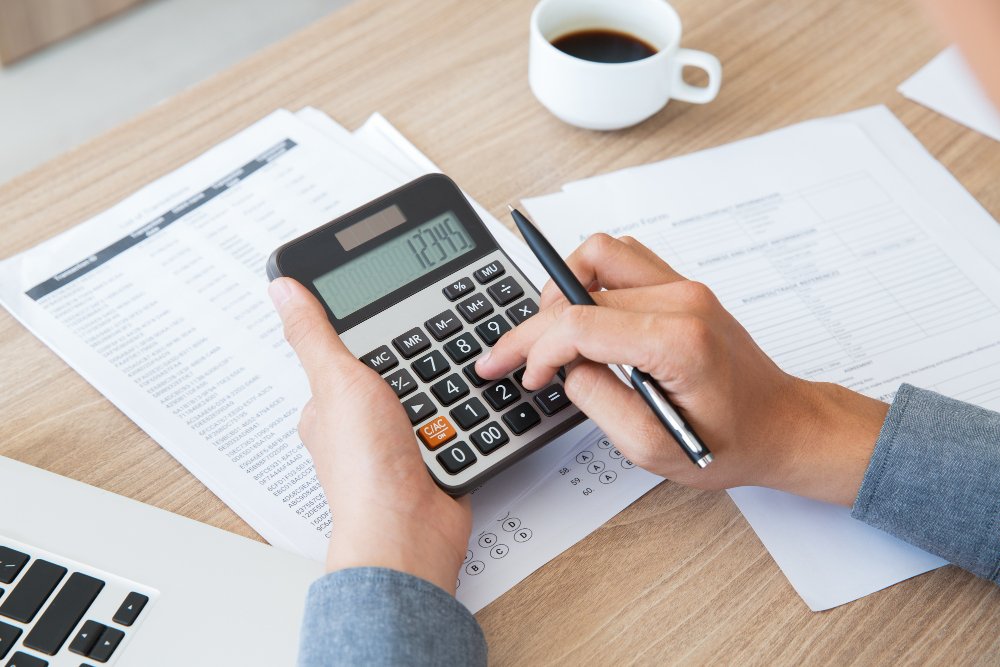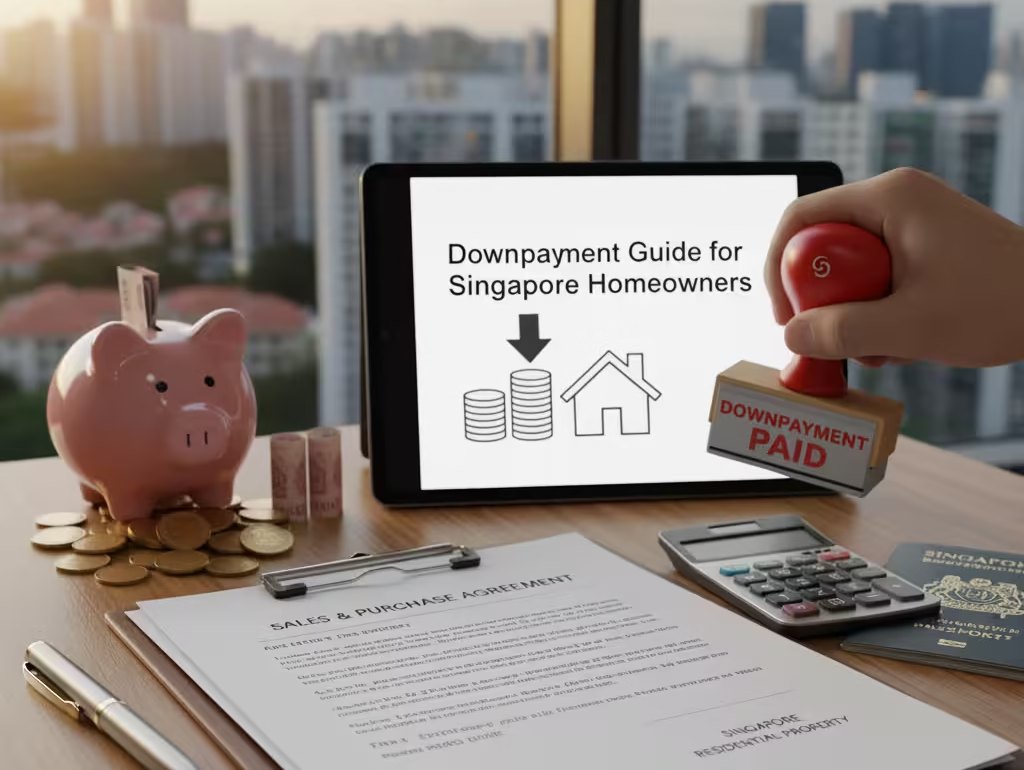
Property Tax in Singapore: A Comprehensive Guide
Property tax is a vital component of Singapore’s revenue system, contributing to the funding of essential public services that benefit all residents. As a homeowner, understanding how property tax works is crucial for financial planning and ensuring compliance with local regulations. This is especially important if you have a private housing loan in Singapore, as property tax is a significant recurring expense.
This guide provides a comprehensive overview of property tax in Singapore, covering calculation methods and tax rates to exemptions, payment procedures, and seeking professional advice. This information can be helpful when assessing your overall homeownership costs, even when using a loan eligibility calculator in Singapore for a potential house loan refinancing.
Table of Contents
ToggleWho is Liable to Pay Property Tax?
Property tax in Singapore is levied on the property owner as of 1st January each year. This means that if you own a property on that date, you are responsible for paying the property tax for the entire year, even if you sell the property later in the year.
This usually means the homeowner is liable for the property tax. However, there are a few exceptions:
- Tenants: In some cases, tenants may be responsible for paying property tax, especially if it’s explicitly stated in the tenancy agreement.
- Property Developers: Property developers are liable for paying property tax on unsold units in their developments.
It’s crucial to understand your liability for property tax, whether you’re a homeowner, tenant, or property developer, to ensure timely payment and avoid penalties.
How is Property Tax Calculated in Singapore?
Property tax in Singapore is calculated based on your property’s Annual Value (AV). The AV is an estimated gross annual rent that your property could fetch if it were rented out, excluding furniture, furnishings, and maintenance fees. It’s determined by IRAS based on prevailing market rentals of similar properties in your area.
The formula for calculating property tax is straightforward:
Property Tax = Annual Value (AV) x Property Tax Rate
For example, if the AV of your property is $30,000 and your tax rate is 10%, you would pay $30,000 x 10% = $3,000 in property taxes.
You can find the AV of your property by:
- Checking your property tax bill: The AV is usually stated on your annual property tax bill from IRAS.
- Using the IRAS website: You can check the AV of any property in Singapore on the IRAS website using their online search tool.
- Referring to property portals: Some property portals provide estimated AVs for properties listed on their platforms.
Understanding how property tax is calculated allows you to anticipate your tax obligations and plan your finances accordingly.
Property Tax Rates in Singapore
Singapore adopts a progressive property tax system, meaning the tax rate increases as the Annual Value (AV) of your property increases. This system ensures that those with more valuable properties contribute a larger share to public funds.
Here’s a simplified breakdown of the property tax rates for residential properties:
Owner-Occupied
Annual Value ($) | Effective 1 Jan 2025 | Property Tax Payable |
First $12,000 | 0% | $0 |
First $40,000 | – | $1,120 |
First $50,000 | – | $1,720 |
First $75,000 | – | $4,220 |
First $85,000 | – | $5,620 |
First $100,000 | – | $8,620 |
Non-Owner-Occupied
Annual Value ($) | Effective 1 Jan 2024 | Property Tax Payable |
First 30,000 | 12% | $3,600 |
First $45,000 | – | $6,600 |
First $60,000 | – | $10,800 |
It’s important to note that these are just illustrative figures, and the actual tax rates may vary. You can find the most up-to-date property tax rates on the IRAS website or use their property tax calculator to estimate your tax payable.
Exemptions and Reliefs
While property tax is a mandatory obligation for property owners in Singapore, certain exemptions and reliefs are available that can help reduce your tax payable. These exemptions and reliefs are designed to support specific groups of homeowners or promote certain types of property ownership.
- Owner-Occupier Exemption: If you own and occupy your residential property as your primary residence, you’re eligible for a significant property tax exemption. This exemption recognises the importance of homeownership and aims to make housing more affordable.
- Tax Rebates: The government may occasionally offer property tax rebates to provide financial relief to homeowners, especially during challenging economic times. These rebates are typically announced during the annual budget and automatically applied to eligible properties.
- Vacant Land Exemption: Vacant land that is not used for any commercial or residential purposes may be eligible for a property tax exemption.
- Properties Used for Public Worship or Charitable Purposes: Properties owned and used by registered charities for charitable, religious, or educational purposes may qualify for property tax exemptions.
It’s crucial to check your eligibility for these exemptions and reliefs and apply for them if applicable. You can find more information on the IRAS website or consult a tax advisor for personalised guidance.

Payment Methods and Deadlines
Property tax in Singapore is payable annually. You’ll typically receive your property tax bill for the following year towards the end of the current year. For instance, you’ll receive your 2026 property tax bill sometime in late 2025.
The due date for payment is clearly stated on your property tax bill. It’s crucial to adhere to this deadline to avoid penalties for late payment. IRAS offers several convenient methods for paying your property tax:
- GIRO: This is the most convenient method, as it allows you to make automatic monthly instalments or a one-time annual deduction from your bank account. You can apply for GIRO online via the myTax Portal or through your bank’s internet banking platform.
- myTax Portal: You can make online payments through the myTax Portal using various payment modes, including credit/debit cards and internet banking.
- AXS Stations: Pay your property tax at any AXS station islandwide using your property tax reference number.
- SingPost: You can pay your property tax at selected SingPost post offices.
Choose the payment method that best suits your preferences and ensure you make the payment before the due date to avoid any penalties.
Stay Informed and Manage Your Property Tax Effectively
Property tax is an integral part of homeownership in Singapore. By understanding how it’s calculated, the applicable tax rates, and available exemptions and reliefs, you can effectively manage your property tax obligations and ensure compliance with IRAS regulations.
Remember to explore resources like the IRAS property tax calculator to estimate your tax payable and stay informed about payment deadlines to avoid penalties. For personalised guidance on property tax matters or assistance with your home financing needs, feel free to reach out to a qualified professional like The Loan Connection.
Disclaimer:
The information provided in this blog is for general informational purposes only and does not constitute financial advice. While The Loan Connection (TLC) strives to ensure accuracy, we make no guarantees as to the completeness, reliability, or timeliness of the information. Readers are encouraged to verify details independently and consult qualified professionals before making any financial decisions. TLC is not liable for any losses or damages arising from reliance on the content herein.

